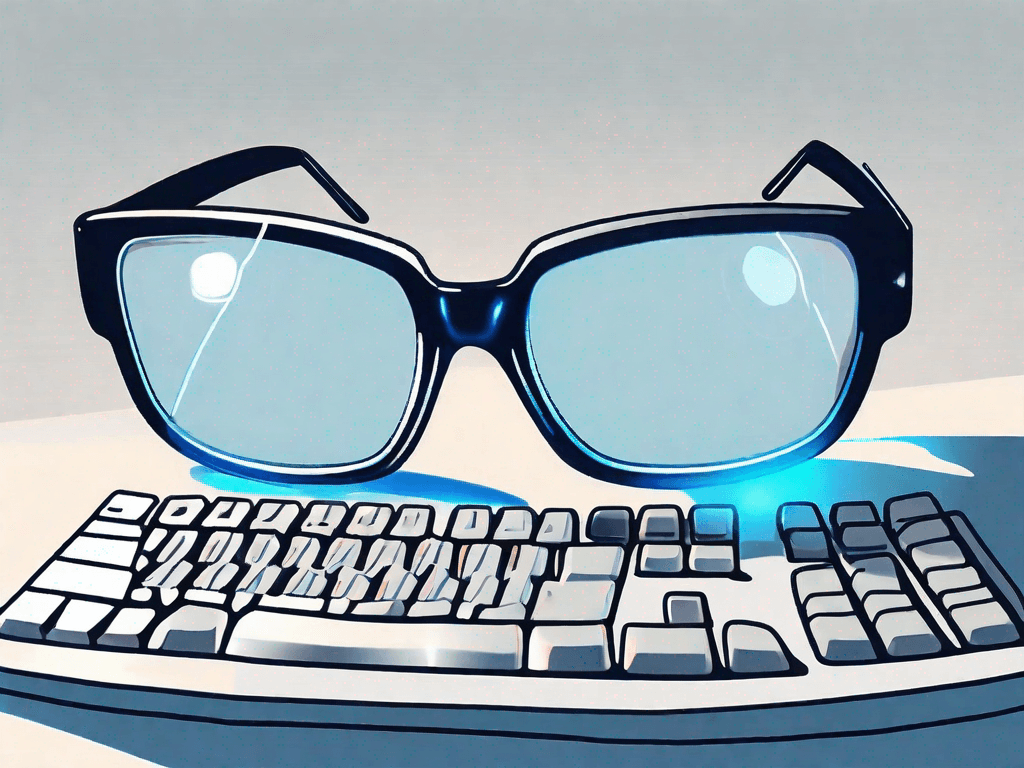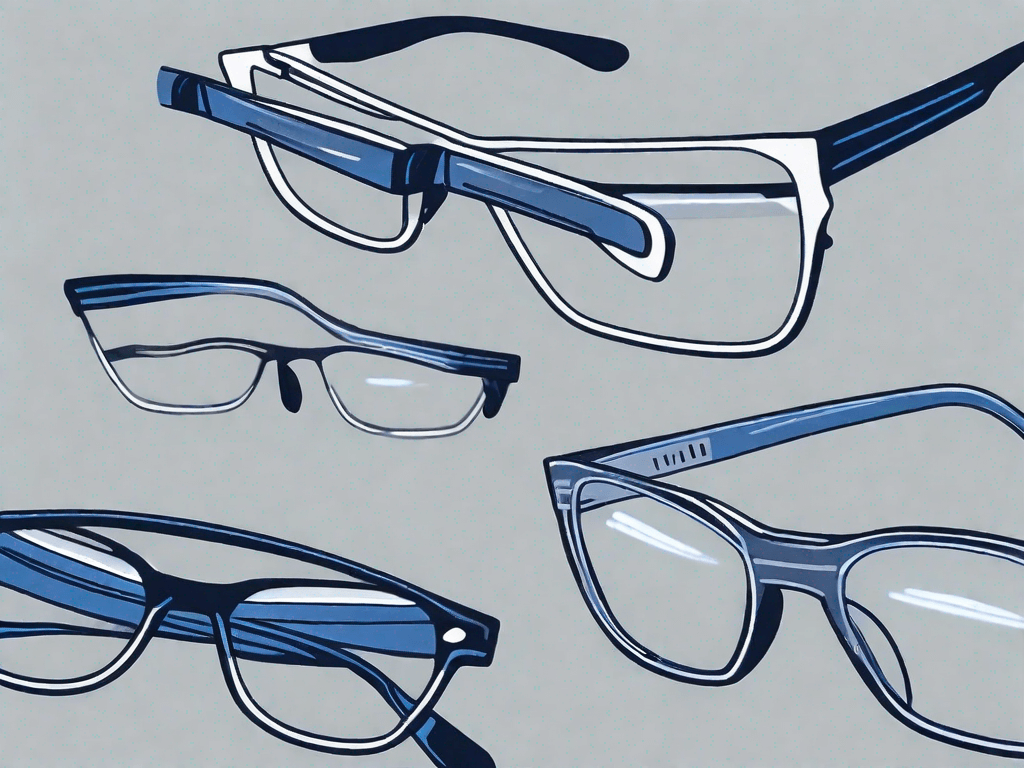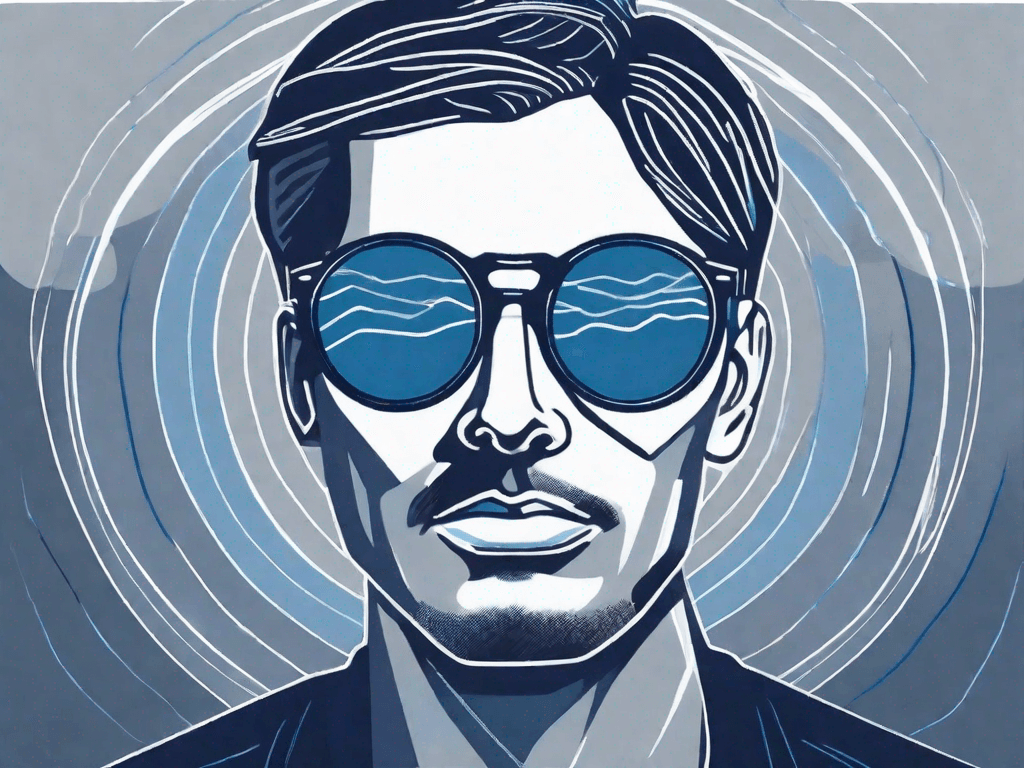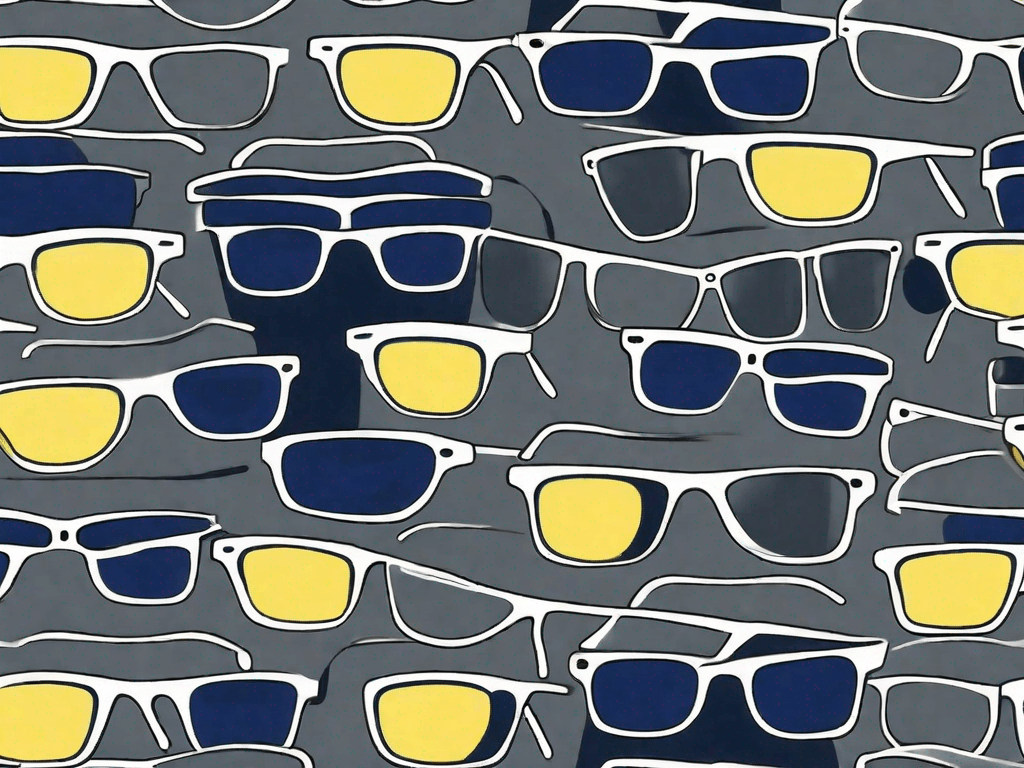How to Know If You Need Blue Light Glasses?
In today's digital age, our eyes are constantly exposed to various forms of light, including blue light. With the increasing use of smartphones, tablets, and computer screens, concerns about the potential negative effects of blue light on our eyes have arisen. But the question is: how to know if you need blue light glasses? In this article, we will delve into the topic of blue light and its impact on our eyes, discuss the concept of blue light glasses, and explore the pros and cons of using them. We will also provide alternative ways to protect your eyes from blue light. So, let's get started!
Understanding Blue Light: What Is It?
Before we dive into the need for blue light glasses, it's important to understand what blue light is and where it comes from. Blue light is a high-energy visible light that is present in the natural sunlight spectrum. It also comes from various artificial sources such as electronic devices, LED lights, and fluorescent bulbs.
The Science Behind Blue Light
Blue light has a short wavelength and a high energy level. It is known to penetrate deeper into the eye compared to other types of light, like red or yellow wavelengths. This capability can have implications for our eye health, which we will explore later in this article.
Sources of Blue Light
As mentioned earlier, blue light can be emitted from both natural and artificial sources. The primary natural source is sunlight, and it plays a crucial role in regulating our sleep-wake cycle, alertness, and mood. On the other hand, artificial sources of blue light include electronic devices such as smartphones, tablets, computers, and televisions.
When it comes to natural sources, sunlight is composed of different colors of light, including blue light. The blue light in sunlight helps to regulate our circadian rhythm, which is our body's internal clock that controls our sleep-wake cycle. Exposure to natural blue light during the day helps us stay awake and alert, while the absence of blue light at night signals our body to prepare for sleep.
Artificial sources of blue light have become increasingly prevalent in our modern lives. Electronic devices such as smartphones, tablets, computers, and televisions emit significant amounts of blue light. With the widespread use of these devices, many people are exposed to blue light for extended periods throughout the day and even into the night.
LED lights and fluorescent bulbs, commonly found in indoor lighting, also emit blue light. These artificial light sources are energy-efficient and long-lasting, making them popular choices for homes, offices, and public spaces. However, prolonged exposure to blue light from these sources can have potential effects on our eye health and overall well-being.
Studies have shown that excessive exposure to blue light, especially at night, can disrupt our sleep patterns. The blue light emitted by electronic devices can suppress the production of melatonin, a hormone that helps regulate sleep. This can lead to difficulties falling asleep and result in poor sleep quality.
In addition to sleep disturbances, prolonged exposure to blue light can also cause eye strain, dry eyes, and blurred vision. The short wavelength of blue light scatters more easily than other colors, making it harder for our eyes to focus. This can lead to eye fatigue, especially when staring at screens for extended periods without breaks.
Furthermore, some studies suggest that long-term exposure to blue light may contribute to the development of age-related macular degeneration (AMD). AMD is a leading cause of vision loss in older adults and affects the central part of the retina responsible for sharp, detailed vision.
Given the prevalence of blue light in our daily lives, it is essential to take proactive measures to protect our eyes. Blue light glasses, also known as computer glasses or gaming glasses, have gained popularity as a way to reduce blue light exposure. These glasses are designed to filter out a portion of blue light emitted by electronic devices, reducing eye strain and potentially improving sleep quality.
While blue light glasses may not be necessary for everyone, they can be beneficial for individuals who spend significant amounts of time in front of screens or who have pre-existing eye conditions. It's always a good idea to consult with an eye care professional to determine if blue light glasses are suitable for your specific needs.
The Impact of Blue Light on Your Eyes
Now that we have a basic understanding of what blue light is, let's explore its potential effects on our eyes.
Blue light, also known as high-energy visible (HEV) light, is a type of light with a short wavelength and high energy. It is emitted by various sources such as electronic devices, LED lights, and the sun. While blue light is present naturally in sunlight and is essential for regulating our sleep-wake cycle, excessive exposure to artificial blue light can have negative consequences for our eyes.
Exposure to blue light, especially in large quantities and at close proximity, can cause a range of short-term effects on our eyes. These effects may include eye strain, dryness, blurred vision, and headaches. When we spend long hours in front of digital screens, such as computers, smartphones, and tablets, our eyes are exposed to a significant amount of blue light. This prolonged exposure can lead to digital eye strain, also known as computer vision syndrome, which is characterized by discomfort and fatigue in the eyes.
However, it's important to note that not all blue light is harmful. Blue light from the sun during daylight hours can actually be beneficial, as it helps boost alertness, improve mood, and enhance cognitive function. It is the excessive exposure to artificial blue light, particularly in the evening and night-time, that can disrupt our sleep patterns and potentially have long-term effects on our eyes.
Long-Term Effects of Blue Light Exposure
While the short-term effects of blue light exposure can be bothersome, there is ongoing research to determine the long-term effects. Some studies suggest a potential correlation between prolonged blue light exposure and an increased risk of age-related macular degeneration (AMD). AMD is a progressive eye condition that can lead to vision loss and affects the central part of the retina, called the macula. The macula is responsible for sharp, central vision, which is crucial for activities like reading, driving, and recognizing faces.
Excessive exposure to blue light may contribute to the development or progression of AMD by causing oxidative stress and retinal damage. The high-energy blue light can penetrate deep into the eye and reach the retina, where it can trigger a series of reactions that generate harmful free radicals. These free radicals can damage the cells of the macula over time, leading to the development of AMD.
However, it is important to note that the research on the long-term effects of blue light exposure is still in its early stages, and more studies are needed to establish a conclusive link between blue light and AMD. Additionally, there are various factors that can contribute to the development of AMD, such as age, genetics, and overall eye health. Therefore, it is essential to take a holistic approach to eye care, including regular eye exams, a balanced diet rich in antioxidants, and adopting healthy habits when using digital devices.
In conclusion, while blue light exposure can have short-term effects on our eyes, such as eye strain and headaches, the long-term effects are still being studied. It is important to be mindful of our exposure to artificial blue light, especially from digital screens, and take steps to protect our eyes, such as using blue light filters or reducing screen time before bed. By maintaining a healthy balance and practicing good eye care habits, we can minimize the potential risks associated with blue light exposure.
The Concept of Blue Light Glasses
Now that we understand the potential impact of blue light on our eyes, let's explore the concept of blue light glasses and how they claim to mitigate its negative effects.
Blue light glasses have gained popularity in recent years as more and more people spend extended periods of time in front of screens. These specially designed eyewear aim to filter out or block a portion of the blue light spectrum, which is emitted by electronic devices such as smartphones, tablets, and computers.
But how exactly do blue light glasses work?
How Do Blue Light Glasses Work?
Blue light glasses use special lenses with a blue light filter that helps reduce the amount of blue light reaching our eyes. These lenses are designed to selectively block or absorb the high-energy blue light waves, while still allowing other beneficial light to pass through.
The blue light filter in these glasses can be achieved through various methods. Some glasses have a clear lens with a blue light filter coating, which is applied to the surface of the lens. This coating helps to reflect and absorb a significant amount of blue light, preventing it from reaching our eyes.
On the other hand, some blue light glasses have lenses specifically tinted to block blue light. These lenses are usually yellow or amber in color, as these hues are known to effectively filter out blue light. By wearing these tinted lenses, the amount of blue light entering our eyes is significantly reduced, potentially minimizing the negative impact on our eye health.
Different Types of Blue Light Glasses
There are various types of blue light glasses available in the market today, catering to different needs and preferences.
For those who require vision correction, prescription blue light glasses are available. These glasses have lenses that not only correct your vision but also incorporate a blue light filter to protect your eyes from the harmful effects of blue light.
Non-prescription blue light glasses, on the other hand, are designed for individuals with normal vision who want to protect their eyes from blue light. These glasses are available in various styles and designs, allowing users to choose a pair that suits their personal taste.
In addition to prescription and non-prescription glasses, there are also clip-on attachments available for those who already wear prescription glasses. These clip-on attachments can be easily added to your existing glasses, providing the same blue light filtering benefits without the need for an additional pair of glasses.
Overall, blue light glasses offer a potential solution for those concerned about the impact of blue light on their eye health. By reducing the amount of blue light reaching our eyes, these glasses aim to alleviate symptoms such as eye strain, dryness, and fatigue that can be associated with prolonged screen time.
It's important to note that while blue light glasses may help mitigate the negative effects of blue light, they are not a substitute for practicing good screen habits and taking regular breaks from electronic devices. Incorporating these glasses into a comprehensive eye care routine can be beneficial, but it's always best to consult with an eye care professional for personalized advice.
Identifying the Need for Blue Light Glasses
Now that we know what blue light glasses are and how they work, let's explore the signs that may indicate a need for blue light glasses.
But first, let's delve deeper into the effects of blue light on our eyes. Blue light, which is emitted by electronic devices such as smartphones, tablets, and computers, can penetrate deep into the eye and reach the retina. Prolonged exposure to blue light can lead to various eye problems, including digital eye strain, dryness, and headaches.
So, how can you tell if you need blue light glasses?
Signs You May Need Blue Light Glasses
If you frequently experience eye strain, dryness, or headaches after prolonged screen time, it might be worth considering blue light glasses. These symptoms, collectively known as computer vision syndrome, can occur due to the continuous exposure to blue light.
But that's not all. Blue light can also disrupt our sleep patterns. The exposure to blue light in the evening can suppress the production of melatonin, a hormone that regulates sleep. This can result in difficulty falling asleep or staying asleep throughout the night.
In addition to that, blue light can affect our ability to focus. When we are exposed to blue light for long periods, it can cause visual fatigue and make it harder for us to concentrate on tasks.
Furthermore, some individuals may experience increased sensitivity to light, known as photophobia, due to blue light exposure. This can lead to discomfort and a heightened sensitivity to bright lights.
Who Should Consider Blue Light Glasses?
While blue light glasses can potentially benefit everyone, certain individuals may be more prone to the negative effects of blue light. Those who spend a significant amount of time in front of screens, such as office workers, students, and gamers, may find blue light glasses beneficial.
Office workers, for instance, often spend hours staring at computer screens, which can lead to eye strain and other related symptoms. Students, who rely heavily on electronic devices for studying and research, are also susceptible to the effects of blue light. And let's not forget about gamers, who spend countless hours immersed in digital worlds, exposing their eyes to prolonged blue light exposure.
It's important to note that blue light glasses are not just for adults. Children and teenagers who spend a significant amount of time using electronic devices can also benefit from wearing blue light glasses to protect their eyes.
In conclusion, if you experience any of the signs mentioned earlier, or if you fall into one of the groups that are more prone to the negative effects of blue light, it may be worth considering blue light glasses as a way to protect your eyes and alleviate the symptoms associated with prolonged screen time.
The Pros and Cons of Using Blue Light Glasses
As with any eyewear or technology, blue light glasses have both advantages and disadvantages. Let's take a closer look at them.
Benefits of Blue Light Glasses
The primary benefit of blue light glasses is their potential to reduce eye strain and discomfort caused by prolonged exposure to blue light. They can also improve sleep quality by minimizing the disruption of our natural sleep-wake cycle.
Potential Drawbacks of Blue Light Glasses
While blue light glasses can be helpful, it's important to consider their potential drawbacks. Some people may find it challenging to adjust to the yellow tint associated with blue light glasses. Additionally, wearing blue light glasses for extended periods may lead to a false sense of security, potentially neglecting other necessary eye care habits.
Other Ways to Protect Your Eyes from Blue Light
While blue light glasses can be a viable option for eye protection, there are alternative ways to reduce blue light exposure and maintain eye health.
Lifestyle Changes to Reduce Blue Light Exposure
One of the simplest ways to reduce blue light exposure is by practicing good screen habits. Taking frequent breaks, adjusting screen brightness, and maintaining an appropriate distance from your device can help minimize the impact of blue light on your eyes.
Technological Solutions for Blue Light Protection
In addition to lifestyle changes, there are also technological solutions available to protect your eyes from blue light. These include blue light filters or protective screen covers for electronic devices, as well as software applications that adjust the color temperature of your screen to reduce blue light emission.
The need for blue light glasses varies from person to person. If you experience symptoms related to prolonged screen time or are at a higher risk of the potential negative effects of blue light exposure, blue light glasses may be beneficial for you. However, it's essential to consider the pros and cons, as well as alternative methods of protecting your eyes from blue light. As always, consulting with an eye care professional can provide personalized recommendations based on your specific needs and circumstances.





